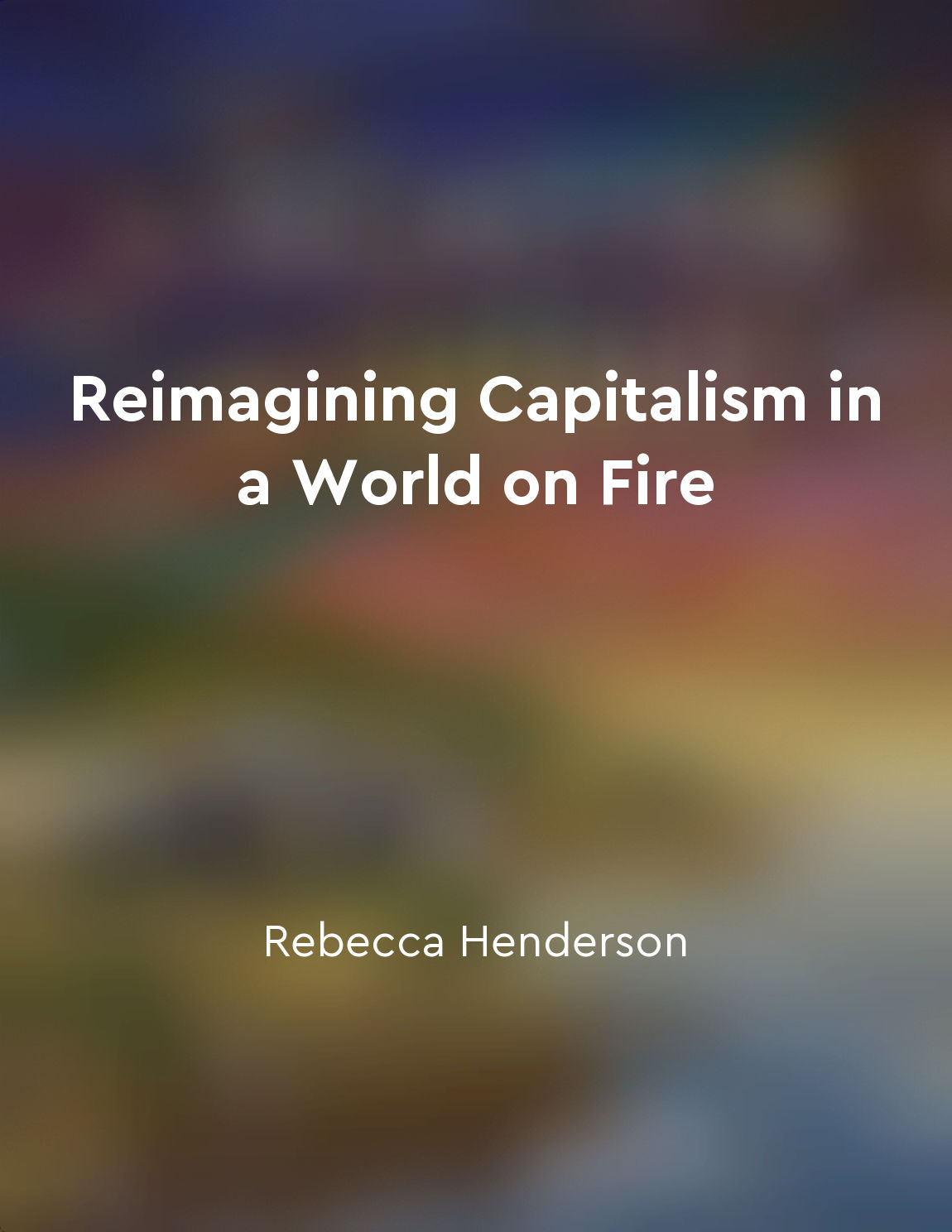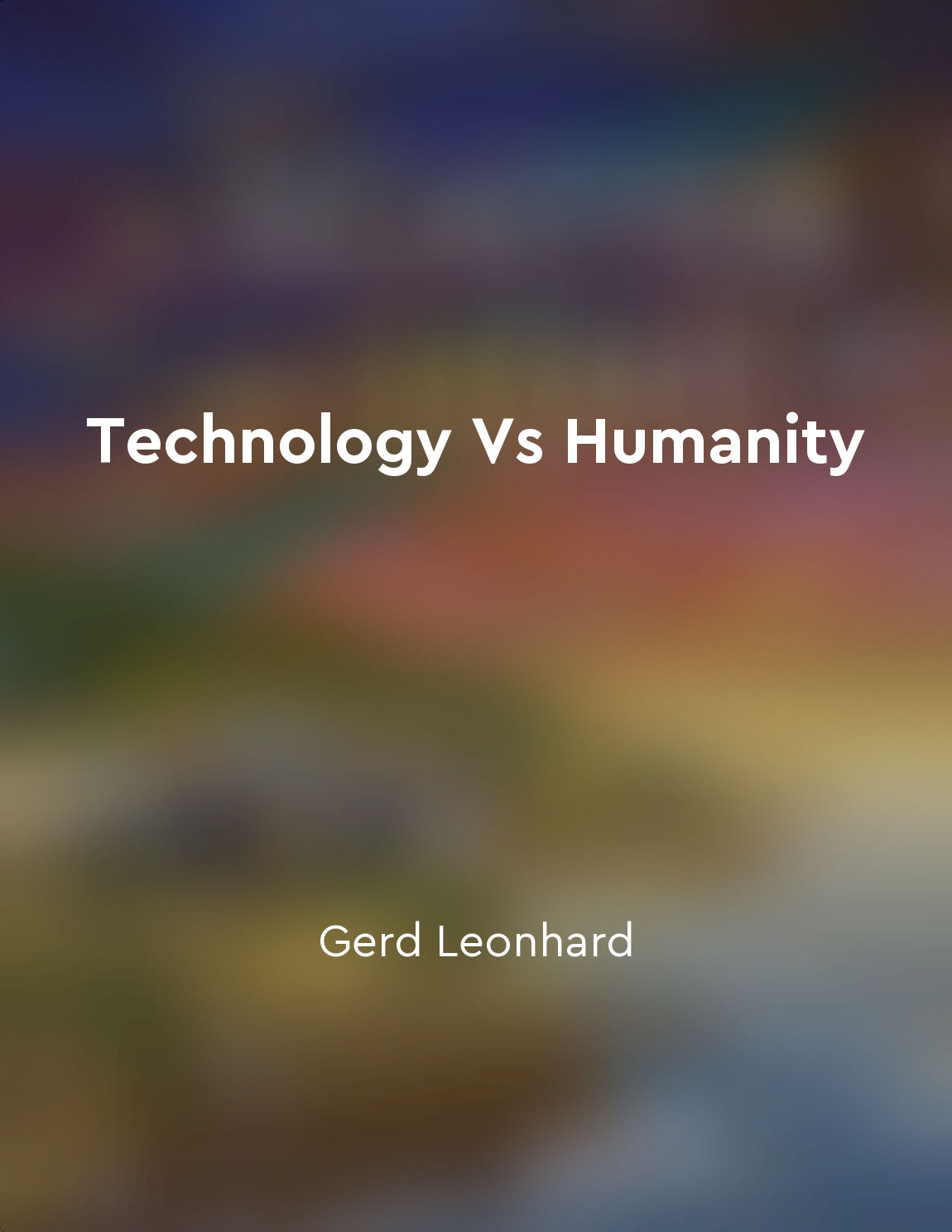Economic rationalism can undermine important social structures from "summary" of Dark Age Ahead by Jane Jacobs
Economic rationalism, when unchecked, has the potential to erode the very social structures that are essential for a healthy and thriving society. This ideology places a high value on efficiency and profit maximization, often at the expense of other important considerations. In the pursuit of economic gains, businesses and individuals may neglect the well-being of communities, the environment, and even their own long-term interests. When economic rationalism dominates decision-making, social institutions that safeguard the common good can be weakened or dismantled. For example, public services that provide essential support to vulnerable populations may be privatized or defunded in the name of cost-cutting and efficiency. This can have devastating consequences for those who rely on these services for their basic needs. Moreover, the focus on short-term economic gains can lead to unsustainable practices that harm the environment and future generations. Industries may exploit natural resources without regard for conservation or environmental impact, endangering the delicate balance of ecosystems. In the long run, this approach is not only destructive but also shortsighted, as it jeopardizes the well-being of future generations. Furthermore, economic rationalism can erode the social fabric of communities by prioritizing individual interests over collective well-being. When profit becomes the primary motive, relationships based on mutual trust and cooperation can be strained. Social bonds that are essential for a healthy society, such as trust, reciprocity, and social cohesion, can be weakened as self-interest takes precedence.- Economic rationalism, when taken to extremes, can undermine the very foundations of a healthy and resilient society. It is imperative that we strike a balance between economic considerations and social values to ensure that our communities are sustainable and equitable. By recognizing the limitations of economic rationalism and prioritizing the common good, we can build a more just and prosperous society for all.
Similar Posts

Resilience is key to weathering future challenges
In a world marked by increasing uncertainty and volatility, the ability to bounce back from setbacks and adapt to changing circ...

Efficient legal institutions enhance social welfare
The central idea here is that the design and functioning of legal institutions have a significant impact on the overall well-be...

Minimum wage laws can hurt lowskilled workers
Milton Friedman argues that minimum wage laws, despite their good intentions, can actually have negative consequences for low-s...
Education is vital for a healthy democracy
Education lies at the heart of democracy. It is not merely a tool for acquiring knowledge and skills; rather, it is a means of ...

Trust is critical in the digital age
Trust is the glue that holds our society together. It is the foundation of all relationships, whether personal or professional....

The idea of private property transformed human relationships
The introduction of private property altered the fundamental dynamics of human relationships. Previously, individuals lived in ...
Building resilient infrastructure for longterm sustainability
The key to ensuring the long-term sustainability of our infrastructure lies in its resilience. Resilient infrastructure is able...
Rational actors make decisions based on selfinterest
Rational actors are individuals who are driven by self-interest when making decisions. This means that they carefully weigh the...
Markets allocate resources efficiently
The concept that markets allocate resources efficiently is a fundamental principle in economics. When consumers and producers i...
Inclusivity promotes diversity
Inclusivity is a powerful force that can drive positive change in our society. By embracing inclusivity, we create a welcoming ...

